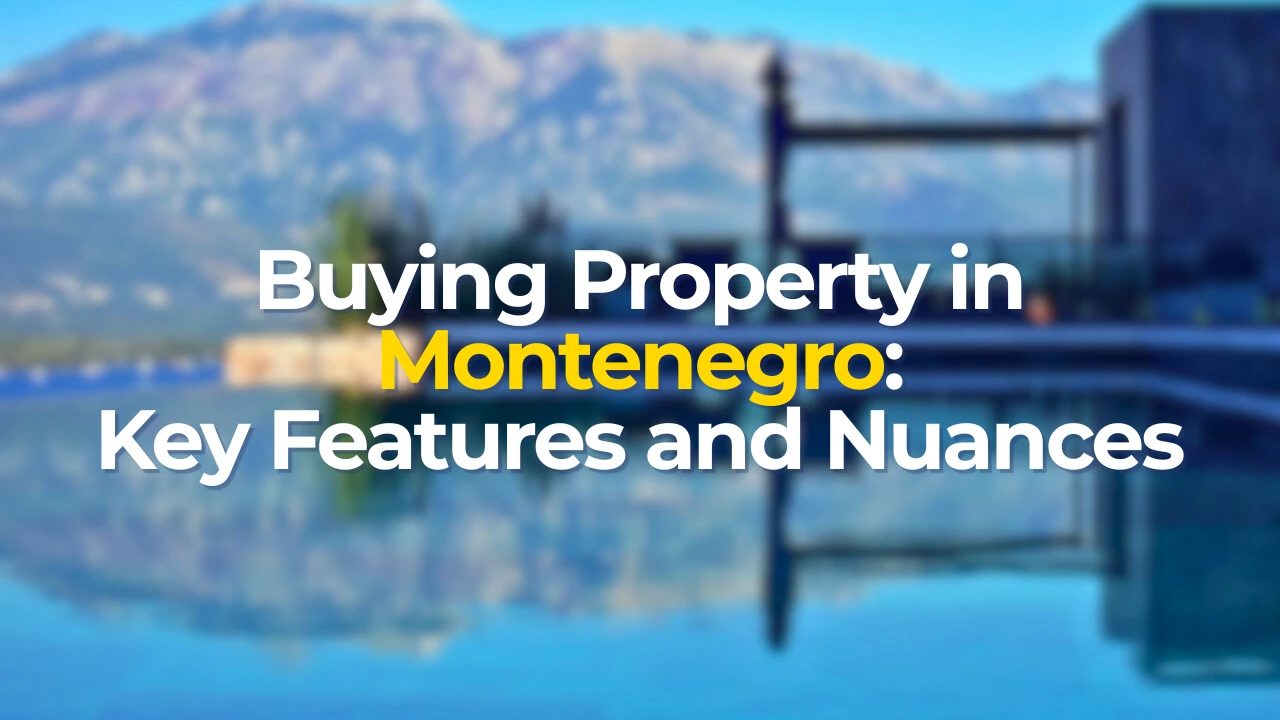Montenegro remains one of the most attractive destinations on the Adriatic for those seeking a seaside home or a profitable rental property. The nature, mild climate, growing tourist flow, and relatively affordable prices make the market very appealing. At the same time, the country has its own specifics that buyers should consider.
1. Documents and the Cadastre
The main property document in Montenegro is the List nepokretnosti (title deed). It shows all the essential data: owner, size, land category, and permits.
⚠️ Registering ownership in the cadastre can take from 2 weeks to 3–6 months, depending on the municipality. This doesn’t mean the purchase is invalid — the procedure just requires time.
Sometimes small mistakes occur, such as in the property size or the owner’s name. These are usually corrected quickly and without major issues, but it is better to check everything in advance.
Pay special attention to notes such as:
- „nema dozvolu“ — no construction permit;
- „prekoracenje“ — exceeded building parameters;
- absence of upotrebna dozvola — usage permit.
Always have the documents checked before signing the contract.
2. Taxes and Fees When Buying
Secondary market (purchase from a private seller):
Since January 1, 2024, a progressive transfer tax applies:
- Up to 150,000 € — 3% of the property price.
- From 150,001 € to 500,000 € — fixed 4,500 € + 5% of the amount above 150,000 €.
- Over 500,000 € — fixed 22,000 € + 6% of the amount above 500,000 €.
⚠️ Note: the tax is based not only on the contract price. If the tax office considers the market value higher, they may recalculate it.
Examples:
- Apartment for 200,000 € → 4,500 € + 5% × (200,000 − 150,000) = 7,000 €.
- Villa for 600,000 € → 22,000 € + 6% × (600,000 − 500,000) = 28,000 €.
New build from a developer:
- No transfer tax applies.
- Instead, VAT of 21% is charged (usually included in the price).
Annual property tax:
- Paid after purchase, once a year.
- Set by municipalities, usually 0.25–1% of the cadastral value.
- For a seaside apartment, this may be a few hundred euros; for a villa — several thousand.
Other costs:
- Notary fees: ~250–1000 €, depending on price.
- Translator: 50–200 €.
- Registration in the cadastre: several dozen euros.
3. Transaction Process
- Deposit usually 5–10%, sometimes more for new builds.
- Payments may be made in installments (e.g., 30% on signing, balance later, 10% on completion).
- Contract is signed at a notary, then ownership is transferred. Registration takes time.
4. Restrictions for Foreigners
- Agricultural land cannot be purchased directly — only via a company or after rezoning.
- In the coastal zone (within 100 m from the sea), works require approval from Morsko Dobro, often limiting reconstruction.
5. Practical Tips
- Check for Urban-Technical Conditions (UTU) before buying land — without them, you cannot build.
- Confirm connections to utilities (electricity, water). Sometimes this is resolved only after purchase.
- Cash transactions: banks increasingly require proof of funds and detailed documents.
6. Rental and ROI
- To rent legally, the property must be registered with the tourist board and receive a category (stars).
- Renting without registration can result in fines.
- Property management companies take 20–30% of income but handle all operations.
Conclusion
Buying property in Montenegro is a real opportunity to invest in a fast-developing market. The key is to understand the nuances, check the documents carefully, and take local specifics into account. This way, your deal will be both safe and profitable.

 sr
sr  ru
ru 